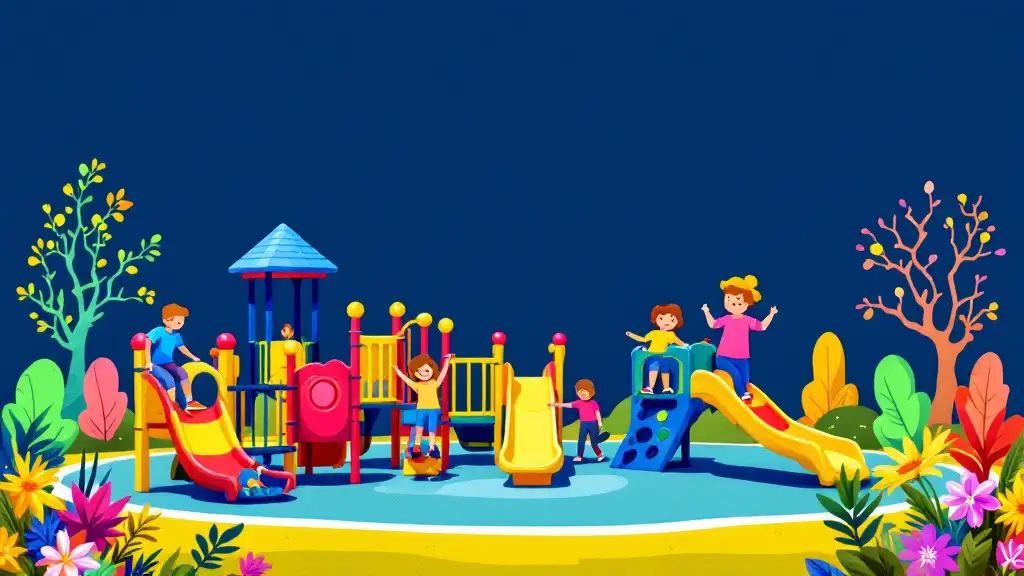
Understanding the Critical Role of DDD in Enhancing Quality of Life
The Division of Developmental Disabilities (DDD) forms a cornerstone of support systems designed to help individuals with Down syndrome lead independent, meaningful lives. This article explores how DDD facilitates a comprehensive, tailored approach to support, emphasizing developmental, medical, social, and community resources to foster growth, independence, and well-being.
The Spectrum of Support Services Provided by DDD

What support services and resources does DDD provide for people with Down syndrome?
The Division of Developmental Disabilities (DDD) offers a comprehensive array of services designed to support individuals with Down syndrome and their families. These services encompass emotional, medical, educational, and community-oriented supports.
Families receive welcome packages and are connected with parent mentor programs, which foster peer support and shared experiences. Counseling services are also available, helping families and individuals navigate the emotional and practical challenges associated with developmental disabilities.
Community engagement is highly encouraged through support groups tailored for parents, caregivers, and adults with Down syndrome. These groups promote social inclusion, independence, and advocacy.
In terms of healthcare, DDD provides access to health care guidelines, personalized health information systems, and hospital care packages. These resources ensure that medical needs are addressed proactively and that individuals receive appropriate treatments.
Financial assistance programs help families manage the costs associated with medical, therapeutic, and supportive services.
Moreover, DDD collaborates with national organizations to strengthen advocacy, develop educational programs, and promote recreational activities. These partnerships aim to foster lifelong support, independence, and community involvement, ensuring that individuals with Down syndrome can lead fulfilling lives.
By integrating these services, DDD strives to support not just medical needs, but also social, emotional, and developmental growth, empowering individuals with Down syndrome to participate fully in community life.
Structuring Support: DDD’s Framework for Assistance

What is the organizational framework of DDD in supporting individuals with Down syndrome?
The support system established by the Arizona Division of Developmental Disabilities (DDD) is designed around a robust organizational framework that ensures comprehensive and effective assistance to individuals with developmental disabilities, including Down syndrome.
At the core of this framework are policies and procedures implemented by specialized Support Coordination Agencies. These agencies operate in compliance with standards set by DDD, which focus on safeguarding quality, safety, and ethical service delivery. They oversee aspects such as governance, staff training, incident reporting, and adherence to federal regulations like HIPAA for privacy and Medicaid requirements for health coverage.
Legislative measures and advocacy efforts also play a vital role in shaping the services provided. Groups like the Down Syndrome Network and coalitions such as the Unified Community Development Services (UCDS) actively contribute to policy development, ensuring the needs of individuals with Down syndrome are prioritized in service planning and implementation.
Moreover, programs including Medicaid and federal laws such as the Individuals with Disabilities Education Act (IDEA) support this organizational structure by offering essential resources for health, education, and community participation.
Supportive agencies like the Administration for Community Living (ACL) work to promote community inclusion, independence, and health outcomes for individuals with Down syndrome. These elements collectively forge a cohesive framework that aligns policies, legal standards, and community resources.
Through coordinated efforts among governmental agencies, nonprofit organizations, and legislative initiatives, the DDD framework strives to facilitate access to personalized services, foster community engagement, and uphold the rights of individuals with Down syndrome.
| Aspect | Description | Related Policy/Agency |
|---|---|---|
| Service Standards | Ensures quality and ethical service delivery | DDD Policies, HIPAA, Medicaid |
| Legislative Support | Laws and reforms shaping service scope | IDEA, ADA |
| Advocacy & Coalitions | Community voice and strategic planning | Down Syndrome Network, UCDS |
| Resources & Programs | Health and educational initiatives | Medicaid, ACL |
| Support Coordination | Custom individual plans | Support Coordination Agencies |
This interconnected system forms the backbone of DDD’s mission to provide inclusive, respectful, and effective services that support individuals with Down syndrome in leading fulfilling lives.
Promoting Development and Independence through Targeted Programs

How does DDD promote development and independence among individuals with Down syndrome?
The Division of Developmental Disabilities (DDD) plays a vital role in fostering growth and independence for individuals with Down syndrome. One of its primary strategies involves early intervention programs that deliver specialized therapies such as physical, speech, and occupational therapy. These therapies are essential in addressing developmental delays, helping children develop motor skills, improve communication, and acquire self-care competencies.
DDD also supports tailored educational plans, including Individualized Education Programs (IEPs), and encourages the use of assistive technology to enhance learning and daily living skills. By focusing on individual strengths and needs, these programs enable individuals to participate more fully in their communities.
Transition planning is a critical component of DDD's approach. During adolescence, support intensifies to prepare individuals for adulthood, including employment opportunities and independent living. This comprehensive approach ensures that individuals with Down syndrome can achieve greater autonomy, contributing to their overall well-being and community integration.
Enhancing Communication: The Power of AAC Devices

What role do communication aids, such as AAC devices, play in interventions supported by DDD for individuals with Down syndrome?
Augmentative and alternative communication (AAC) devices are essential tools within intervention programs for individuals with Down syndrome, particularly those facing speech and language challenges. These devices include picture exchange systems, speech-generating devices, sign language, and other technological supports that help individuals express their needs, wants, and thoughts.
AAC devices function as vital supports that improve both expressive and receptive communication, which are often delayed in individuals with Down syndrome. By providing alternative ways to communicate, these tools facilitate more effective social interactions, bolster independence, and boost confidence.
Early use of AAC, combined with consistent modeling and tailored interventions, encourages speech development and social participation. For example, the Arizona Technology Access Program (AzTAP) offers resources, evaluations, and training to help families and individuals access and effectively use AAC devices.
Incorporating AAC into therapy plans supports personalized approaches that address specific communication needs, thereby improving overall language and social skills. Whether helping a nonverbal individual convey basic needs or fostering complex conversations, AAC tools are indispensable for enhancing quality of life and social inclusion.
Resources like AzTAP for device access and training
Families and caregivers can turn to programs like AzTAP for assistance with acquiring and learning to use AAC devices. AzTAP provides a lending library, evaluations, and training sessions, ensuring individuals get the appropriate technology and skills to maximize benefits.
Benefits of AAC in social interaction and independence
Using AAC devices not only supports communication but also promotes social inclusion. Individuals can participate more fully in social groups, educational settings, and employment opportunities. As communication improves, so does the potential for developing friendships, building confidence, and achieving greater independence.
Support from organizations, trained therapists, and programs like AzTAP helps make AAC accessible and effective, paving the way for individuals with Down syndrome to reach their full potential in social and personal domains.
Research Insights: How DDD’s Programs Improve Quality of Life
Various studies have shown that programs provided by the Division of Developmental Disabilities (DDD) have a positive impact on the lives of individuals with Down syndrome. These programs include educational initiatives, speech and occupational therapy, and behavioral support, all aimed at improving cognitive, communication, and social skills.
Longitudinal research indicates that early intervention and continuous support help individuals develop greater independence and social integration. Families play a central role, and community involvement fosters a sense of belonging. Support services tailored to individual needs contribute to better psychological well-being.
Addressing specific challenges like Down Syndrome Regression Disorder (DSRD) demonstrates that caregiver support is vital. Helping families manage health and emotional challenges leads to improved outcomes for individuals.
Theories such as Self-Determination Theory, which promote autonomy, competence, and relatedness, inform many of DDD’s strategies. This approach emphasizes that fostering independence and meaningful relationships enhances life satisfaction.
Overall, multisystem programs that combine medical, educational, and community supports are most effective. They empower individuals with Down syndrome and their families, significantly improving quality of life.
Looking Ahead: The Future of DDD Support for Down Syndrome
As awareness, research, and advocacy grow, the role of DDD continues to evolve, integrating innovative technologies, policies, and community-based approaches to support individuals with Down syndrome. The ongoing commitment to fostering independence, participation, and well-being ensures that people with Down syndrome can lead fulfilling lives, empowered by a comprehensive support system that champions their rights and potential.
References
- Understanding DDD and ALTCS in Arizona
- Developmental Disabilities | Arizona Department of Economic Security
- Arizona Division of Developmental Disabilities (DDD)
- Navigating Down Syndrome Developmental Disability - Special Strong
- Friendships & Social Relationships
- What's happening with AAC? Changes for DDD Members as of Jan. 1
- Intellectual and Developmental Disabilities Services - NJ.gov
- Down syndrome | Better Health Channel
- 10.3 Caring for Clients With Developmental Disorders - WisTech Open












